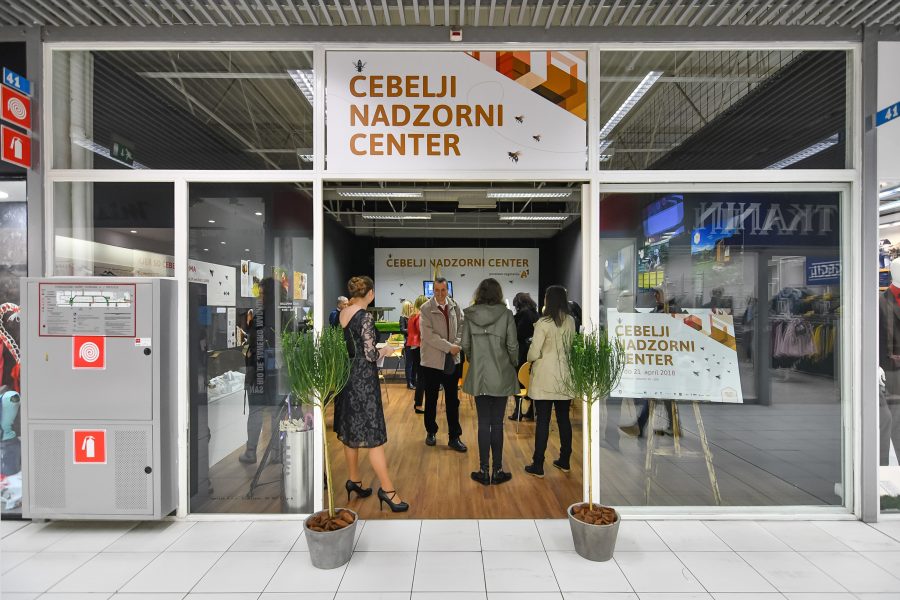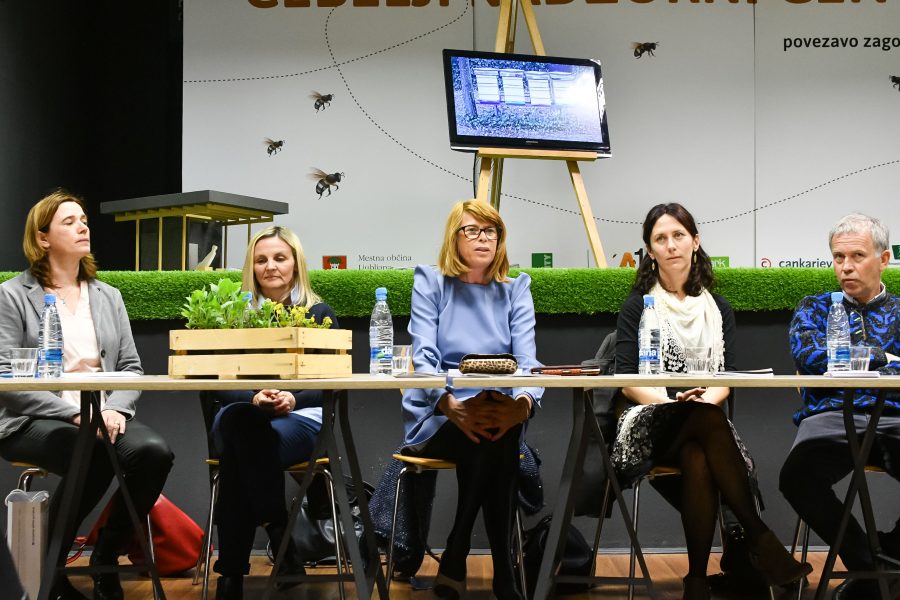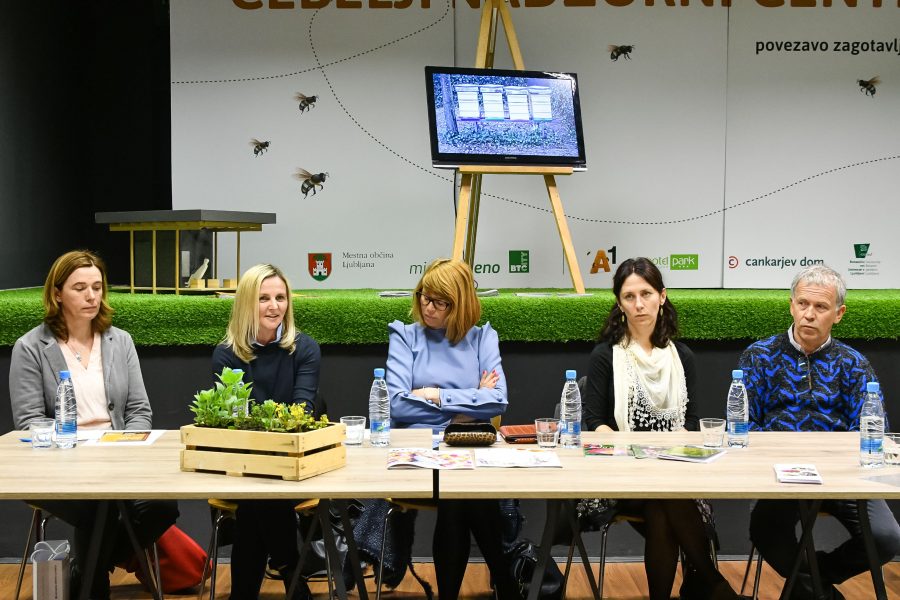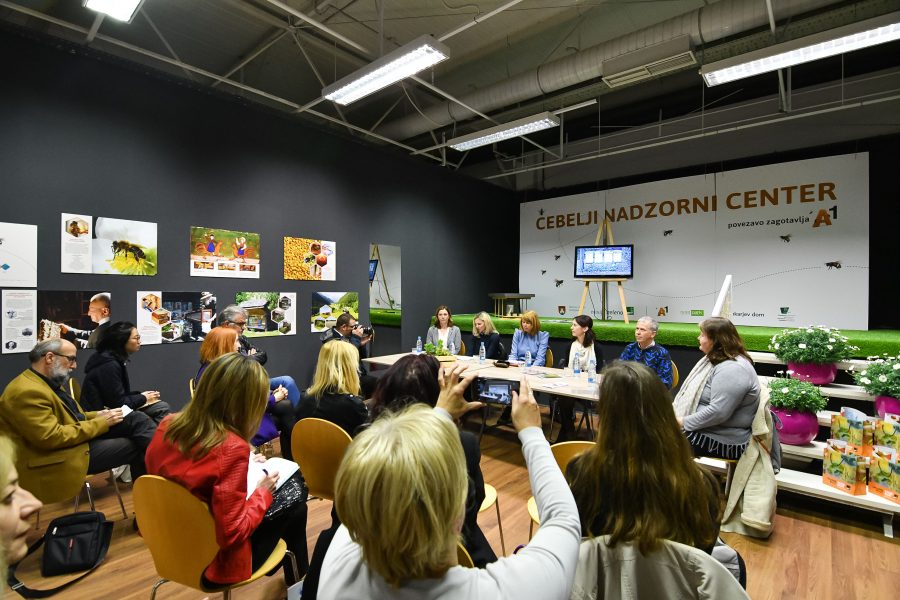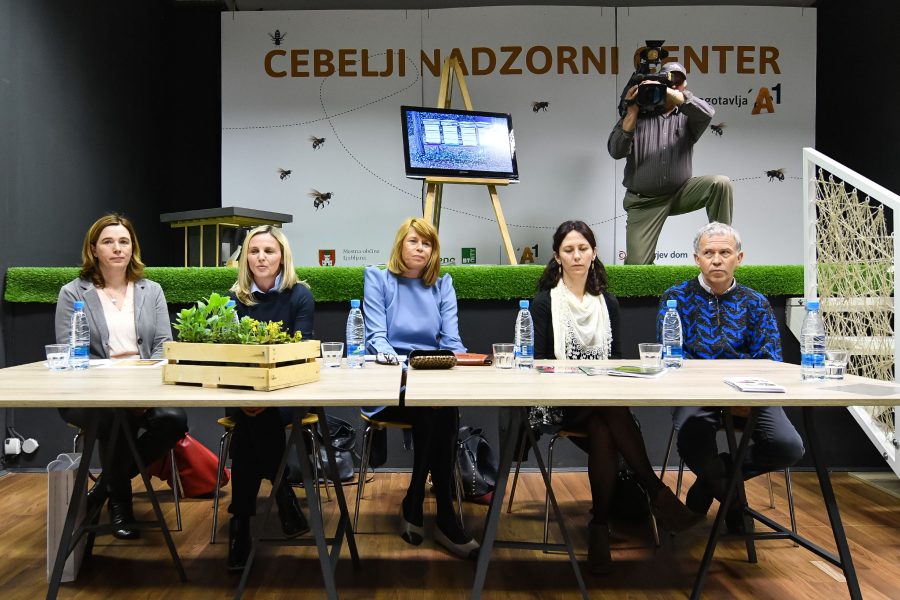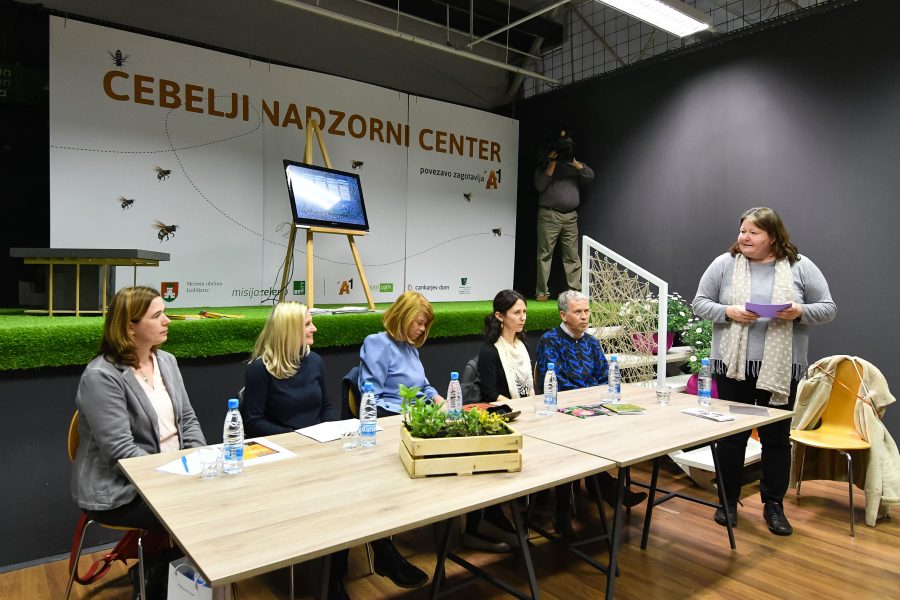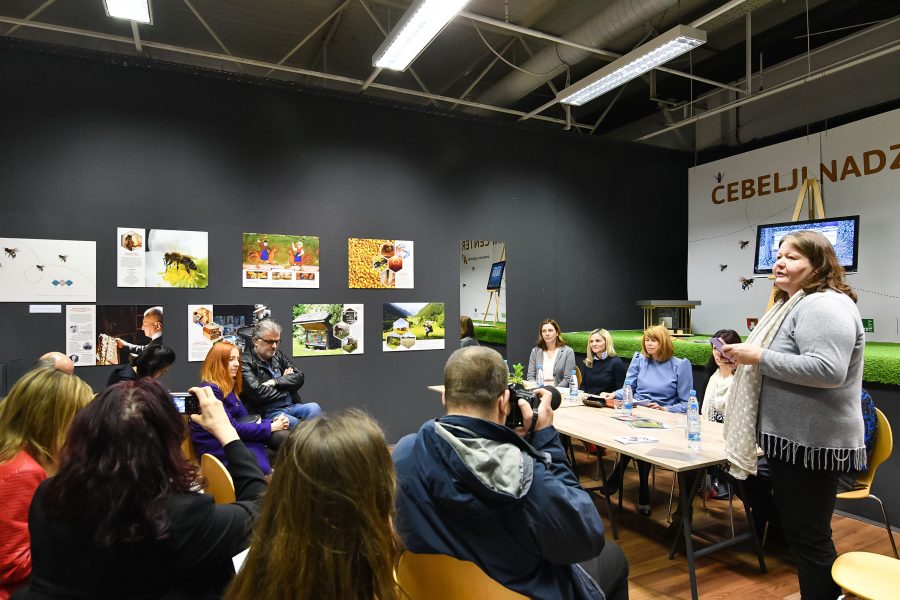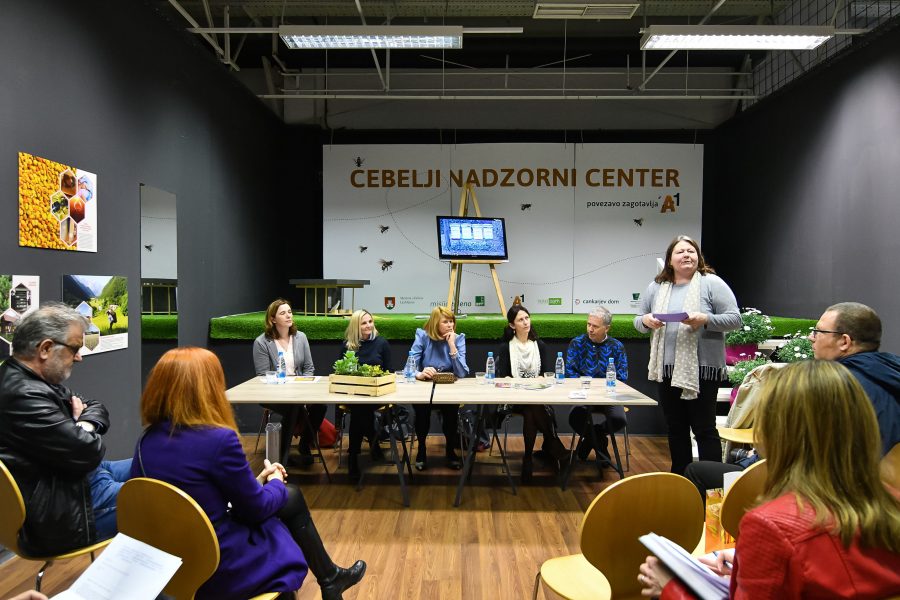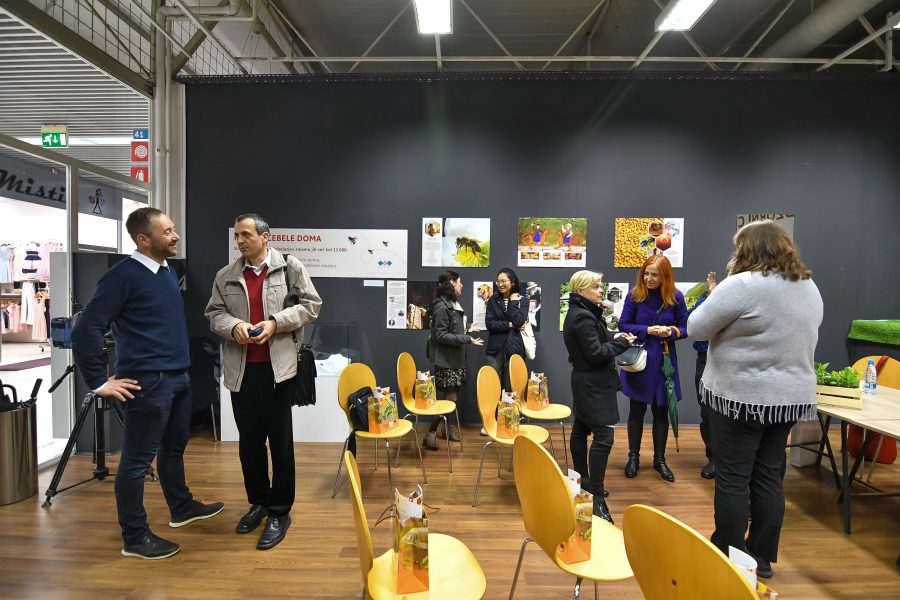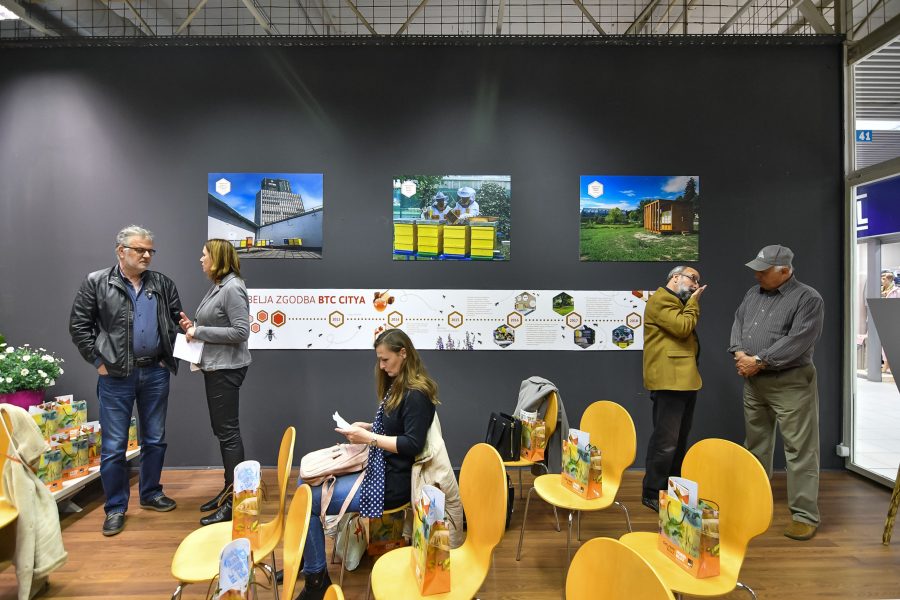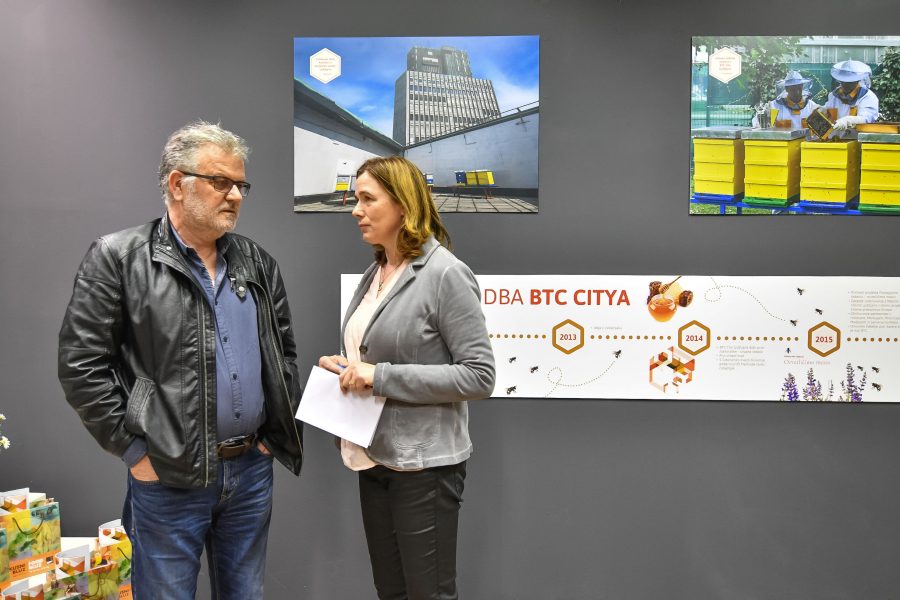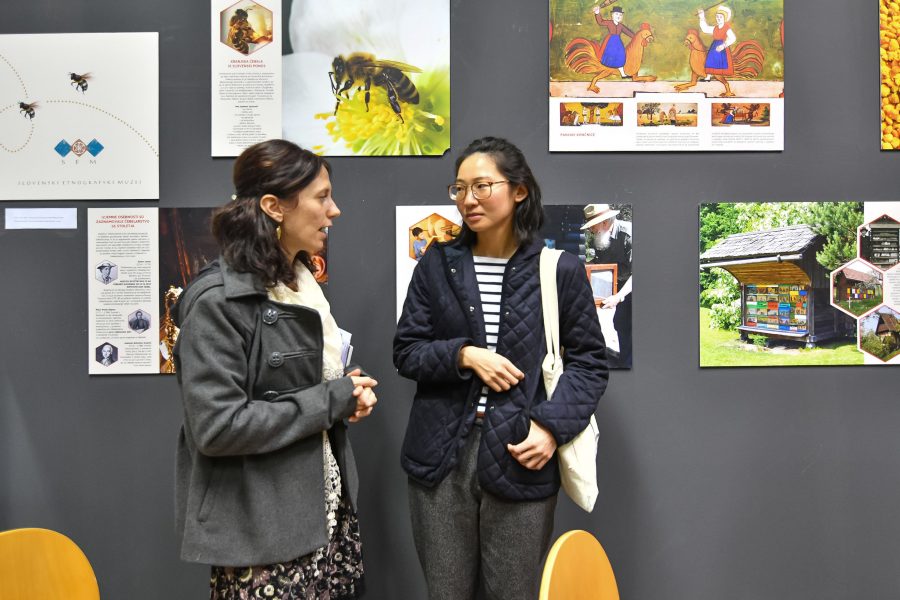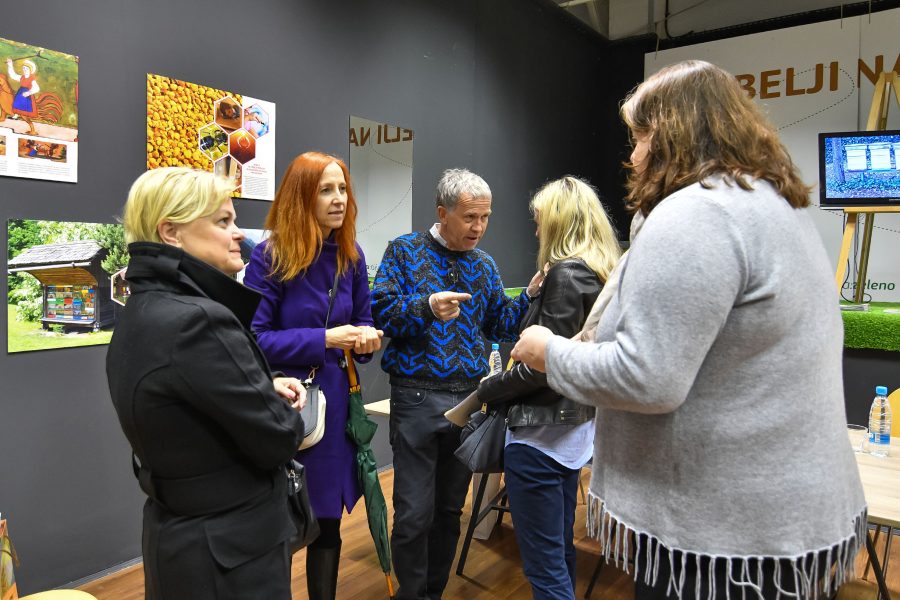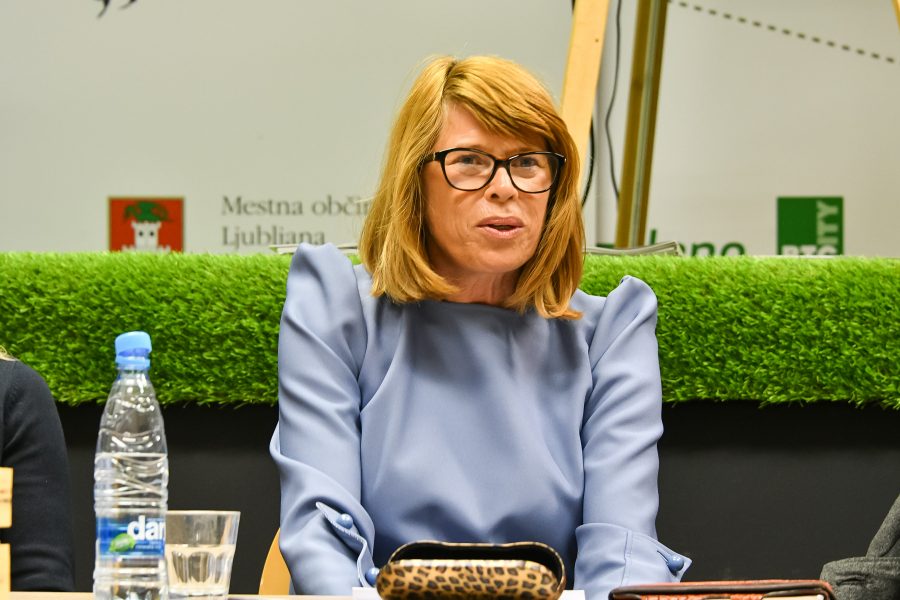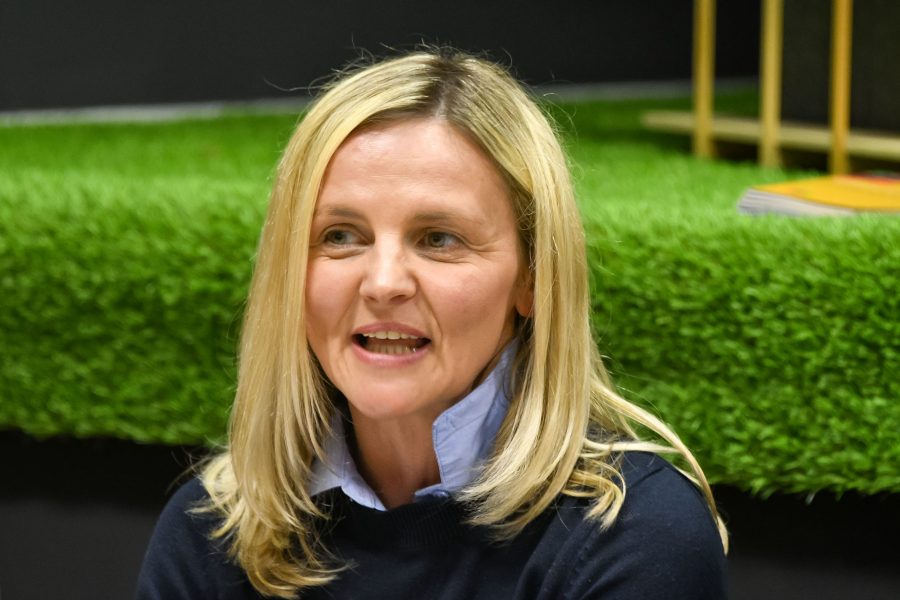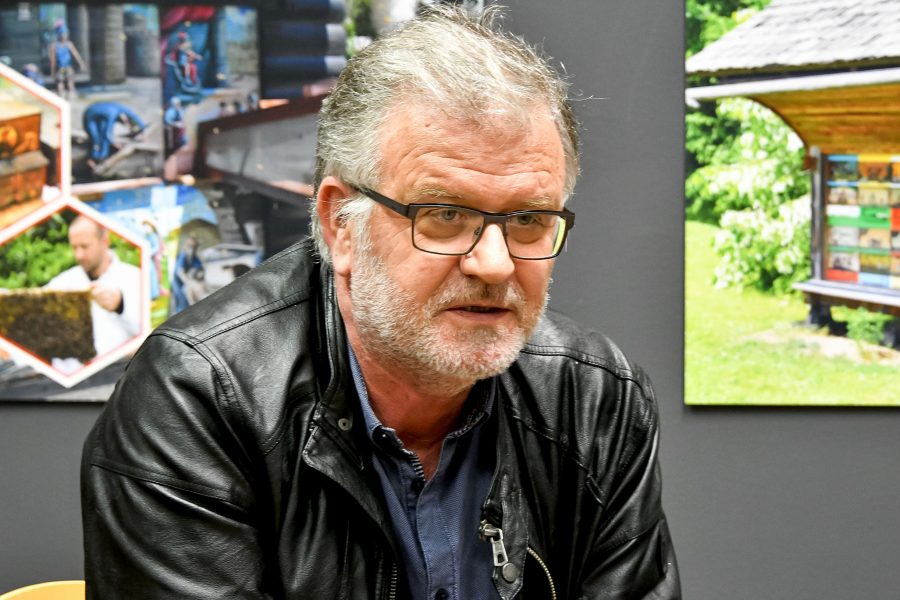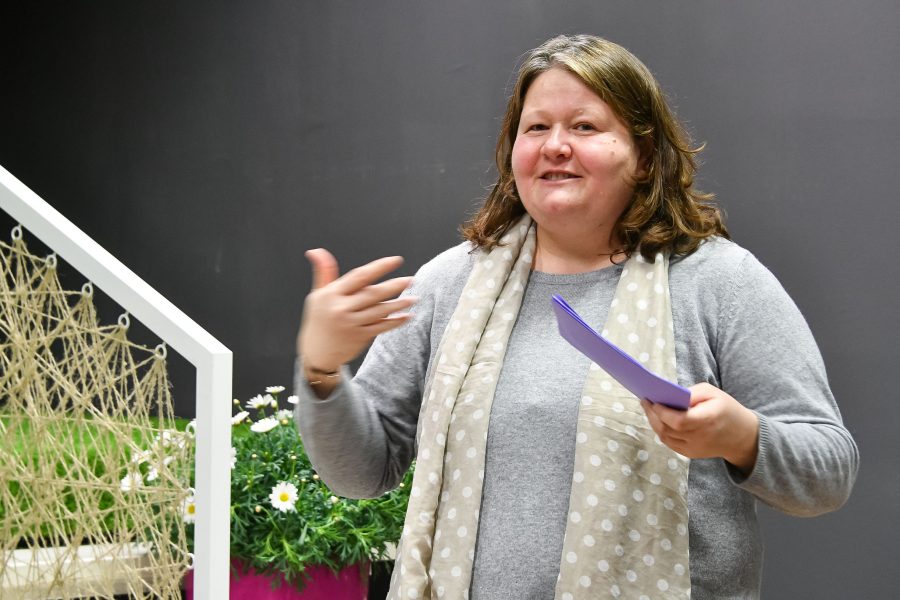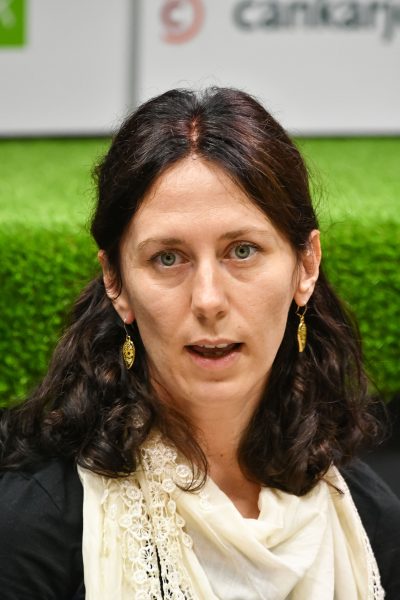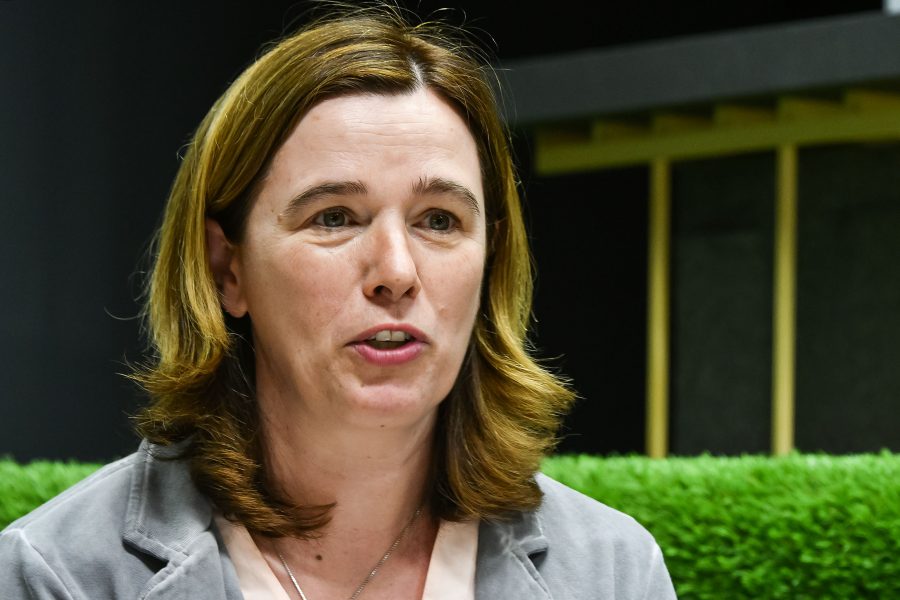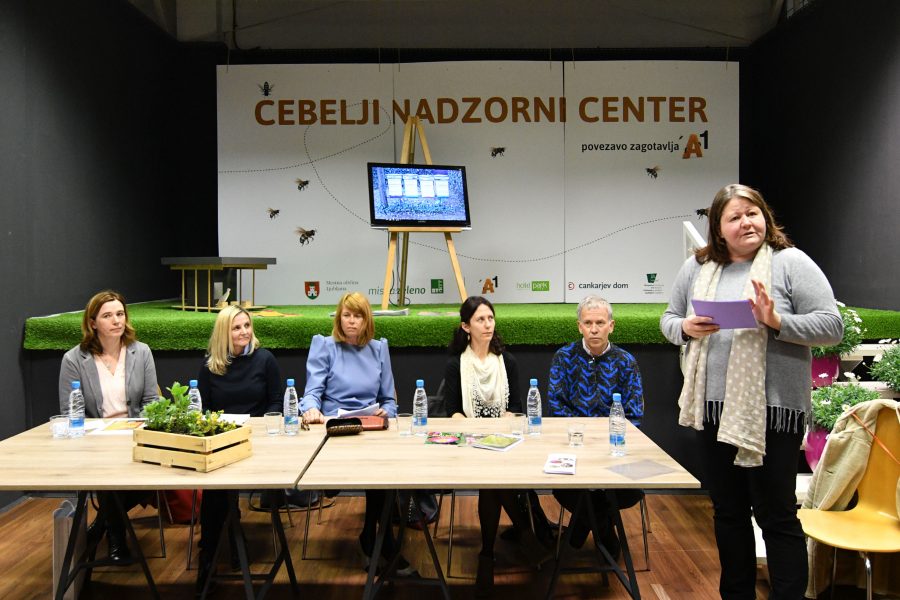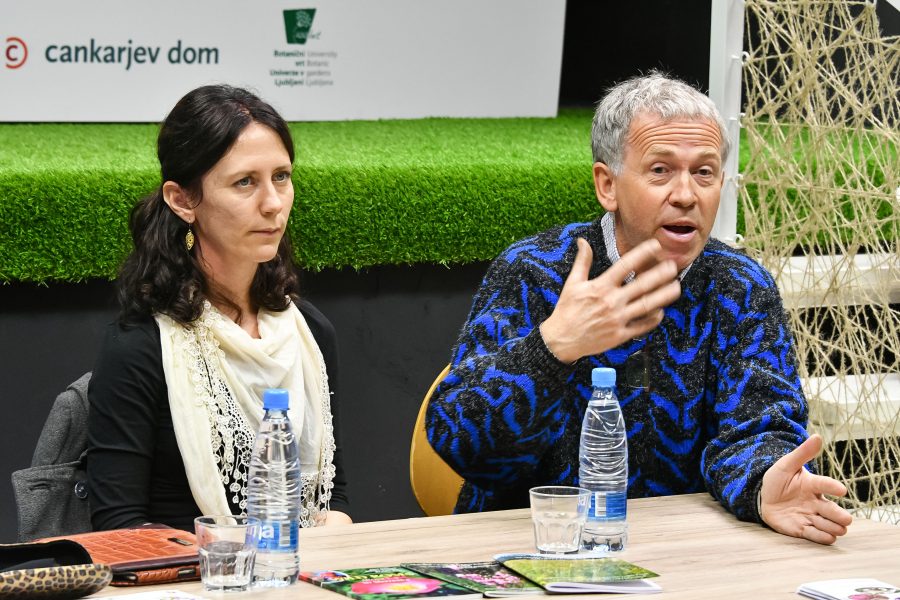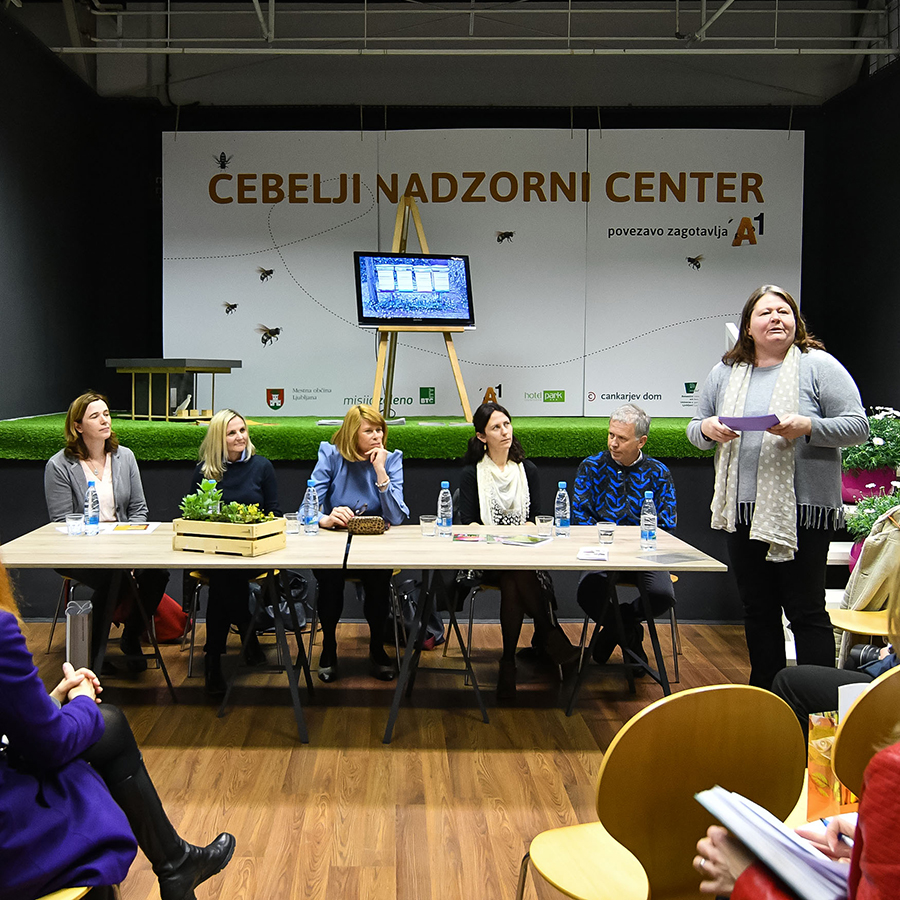
In 2018, which will see the first celebration of the World Bee Day on May 20, the project Help the Bee: Flower Up the City will be implemented for the fifth year in a row. The main project partners – the City of Ljubljana and the BTC Company – have partnered up with others to provide activities in support of raising awareness on the importance of bees and encouraging citizens to plant melliferous flowers on their balconies and windowsills.
The buzzing of bees is the herald of spring. To make the capital of Slovenia as noisy as possible, the City of Ljubljana and BTC, with support from other project partners, have announced events and activities that will take place as part of the project Help the Bee: Flower Up the City.
On Saturday, April 6, free goody bags with melliferous plant seeds were handed out in the Ljubljana city centre, accompanied by expert advice on how to help the bees attain sufficient pasture. On April 10, the exhibition Urban Beekeeping (“Urbano čebelarjenje”) opened in Shopping Arena A, providing visitors with a live stream of the happenings inside the beehive next to Atlantis Water Park by means of a beehive monitoring system. Soon, the live stream will also include other beehives. The next milestone is April 21, when a flower fair will take place at the BTC City Open Market, celebrating the 2018 Earth Day, which will be celebrated the day after. In May, the Ameriška Ulica street in BTC City Ljubljana will be transformed into a sunflower avenue, and from June onward the beehive monitoring system will be presented in the Slovene Ethnographic Museum at the exhibition Home of the Bees (“Kjer so čebele doma”). Between May 17 and May 27, different project partners will hold open days, at which visitors will be given some insight into urban beehives and will be able to familiarise themselves with the challenges of urban beekeeping.
Maja Oven, Director of Marketing and Public Relations Sector at BTC: “With our pillar of sustainability, Mission: Green, BTC has been striving for the wellbeing of bees, especially in an urban environment, since 2014. We have put up an urban beehive next to Atlantis Water Park, and this will be the first year that visitors can witness what is happening inside it with the help of a beehive monitoring system. Although we have also made our business partners keen on the project Help the Bee: Flower Up the City, we feel that our greatest accomplishment is that the initiative has touched our fellow citizens, who show their affection for the bees by planting melliferous plants.”
Nataša Jazbinšek Seršen, head of the City of Ljubljana Department for Environmental Protection: “Help the Bee: Flower Up the City is a project with which the City of Ljubljana, BTC, and other partners enhance the contents of the Bee Path. It is a movement of like-minded entities, who act sustainably and care for the environment. We designed the Bee Path while Ljubljana was the holder of the prestigious title European Green Capital 2016. The path brought together two threads of significance for the city: self-supply and the preservation of biodiversity. Today, it joins no less than 33 partners. The Bee Path aims to increase and advance beekeeping in the broader area of the City of Ljubljana as well as beekeeping in its urban core, stressing safety, awareness, education, the rules of urban beekeeping, the proper positioning of modern bee stands and beehives in the urban space, and the formation of new tourist and educational products related to bees in the city.”
Mag. Blanka Ravnjak, associate expert at the University of Ljubljana Botanical Garden: “In their evolution, plants and bees developed co-dependently. There would not be one without the other. With the Bee Path and the project Help the Bee: Flower Up the City we promote the planting of indigenous melliferous plants in private gardens as well as public spaces. These plant species are optimally adapted to our conditions. They help us preserve the biodiversity of our environment and prevent the introduction of non-indigenous plant species.”
Barbara Sosič, author of the exhibition Home of the Bees, museum consultant at the Slovene Ethnographic Museum: “For centuries, Slovenes have passed on beekeeping knowledge and skills from one generation to the next. We are proud of our Carniolan honey bee, our beehive paintings, and beehives typical of our region. More on this topic will be available at the exhibition Home of the Bees (“Kjer so čebele doma”) in the Slovene Ethnographic Museum from June until December 2018.”
The following partners are also involved in this year’s project Help the Bee: Flower Up the City: A1, Medex, Merkur, Hofer, Semenarna Ljubljana with gardening centres Kalia, and Minicity Ljubljana.
Zlatka Poličar, corporate social responsibility expert at A1 Slovenija: “Last year, we put up four beehives with four bee colonies on the roof of the A1 Slovenija office building in BTC City Ljubljana and became new urban beekeepers. The Carniolan honey bee has become a part of us, of our employees, our business partners, and our environment. Last year, we harvested 90 kg of honey, which was awarded silver at the AGRA fair. The honey was a hit, which is why we will add two new beehives this year. We have taken part in Help the Bee: Flower Up the City because we want to contribute to making the city an even more pleasant habitat for bees and aid in the proliferation of the Carniolan honey bee.”
Petra Kalan Lubajnšek, head of business development at Medex: “Slovenes are a nation of beekeepers and bee products are an important part not only of our diet but also our culture. At Medex, we have cherished the diligence of bees since 1954, and have further enriched their natural treasures based on our own research and development. As much as a third of world food production depends on bees, who are also an accurate indicator of environmental conditions. The fact that last year, for the first time ever, beekeepers in the USA earned more through pollination than the sale of bee products shows us just how much humankind has degraded the conditions necessary for the survival of bees. It is also therefore that Medex has participated in the project Help the Bee: Flower Up the City for the third year in a row and helped raise awareness on the importance of bees for humankind.”
Maja Weinberger, manager in the department for responsible business management and product quality assurance at Hofer: “At Hofer, we have devoted our first sustainable project to bees. The project is called Tending to a Honeyed Future (“Skrbimo za medeno prihodnost”) and it includes different activities aimed at specialists as well as the public at large. We have been conducting research in the Hofer study beehive in cooperation with the Slovenian Beekeepers’ Association since 2014, but we have also envisioned our project to go beyond research alone – we want to educate and raise awareness. This year, the first year to see the celebration of the World Bee Day, we will further boost our activities: we will hand out melliferous plant seeds, organise a round table discussion on the future of bees, prepare a special bee edition of the free children’s magazine Ferdo, and organise a bee day for kids. In addition to our own activities, we will also support the projects of our partners, including, for the third consecutive year, the project Help the Bee: Flower Up the City. We are happy that this is another year in which we will all together help ensure a brighter, honeyed future of our city.”
A detailed list of events and activities is available in the programme attached to the press release. Throughout the year, further information pertaining to the project will be published at www.BTC-City.com/CEBELE (in Slovene only)
Additional information
Maja Oven, Director of Marketing and Public Relations Sector
- T: +386 (0)1 585 13 15
- E: maja.oven@btc.si
Opening of the exhibition Urban Beekeeping
PHOTO: Photo: Studio Bomba




